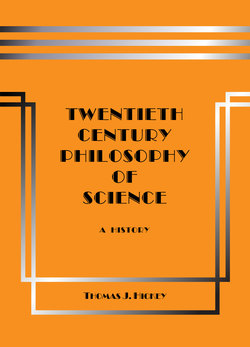Читать книгу Twentieth-Century Philosophy of Science: A History (Third Edition) - Thomas J. Hickey - Страница 41
На сайте Литреса книга снята с продажи.
3.10 Naturalistic vs. Artifactual Semantics
ОглавлениеThe artifactual thesis of the semantics of language is that the semantics of every descriptive term is determined by its linguistic context consisting of universally quantified statements believed to be true.
This means that ontology, semantics and belief mutually determined.
The contemporary pragmatist philosophy of science is distinguished by a post-positivist philosophy of language, which has replaced the traditional naturalistic thesis with the artifactual thesis of semantics. The naturalistic thesis affirms an absolutist semantics according to which the semantics of descriptive terms is acquired ostensively and is fully determined by perceived reality and the processes of perception.
Thus on the naturalistic view descriptive terms function effectively as names or labels, a view that Quine ridicules with his phrase “myth of the museum” and “gallery of ideas”. Then after the meanings for descriptive terms are acquired ostensively, the truth of statements constructed with the descriptive terms is ascertained empirically.
On the artifactual semantical thesis sense stimuli reveal mind-independent reality as semantically signified ontology. Sense stimuli are conceptualized as the semantics that is determined by the linguistic context consisting of a set of beliefs that by virtue of its belief status has a defining rôle for the semantics. When the beliefs function as test-design statements, they may occasion falsification of a theory.
The artifactual semantical thesis together with the ontological relativity thesis revolutionized philosophy of science by relativizing both semantics and ontology to belief, especially empirically warranted belief. The outcome of this new linguistic philosophy is that ontology, semantics and belief are all mutually determined and thus interdependent.
